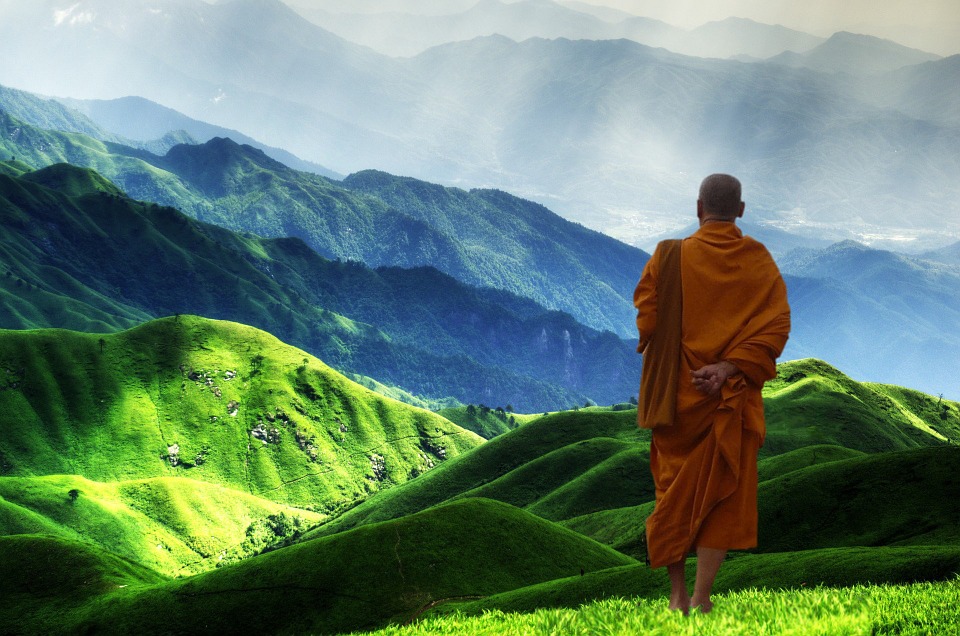Temporality is not a central subject in Buddhism but it is something that is discussed in Buddhist philosophy as it relates to other more central Buddhist precepts.
All ideas about temporality flow from the central thesis that time is a fiction, a figment of the mind or imagination. It is our perception of time and our experience of time that is important in Buddhism.
Temporality & the Now
In his classic book, “Be Here Now”, Ram Dass takes on the issue of temporality with his focus on the importance of being in the present. In Buddhism, we are never fully alive when we are living in the past or the future. All that really exists is in the present moment.
 More recently, Eckhart Tolle championed the same theme in his popular book “The Power of Now.” In a sense, any power we have to change our lives for the better exists in the present. It is in the present that we decide how we will be impacted by the past. It is in the present that we are choosing, with our thoughts, attitudes, and beliefs, what we will experience in the future.
More recently, Eckhart Tolle championed the same theme in his popular book “The Power of Now.” In a sense, any power we have to change our lives for the better exists in the present. It is in the present that we decide how we will be impacted by the past. It is in the present that we are choosing, with our thoughts, attitudes, and beliefs, what we will experience in the future.
This is in keeping with the Buddhist sense of the transitory nature of life. We do not cling to things because everything passes. We can truly only enjoy our life at the moment. Nothing else is real. We are detached from expectations of specific outcomes. We are certainly detached from possessions and all other transitory things of the world.
Emptiness
Also related to the idea of living in the now is the idea of emptiness. Emptiness also helps to keep us firmly in the now. The empty mind is always present. Emptiness can be seen as the creative void. In the emptiness, everything can be created just as God created out of the void, out of the darkness.
Emptiness is closely related to timelessness. In the emptiness, there is no time. In the timeless, there is no space. In the emptiness, you will find peace, joy, and the true self, the Buddha self.
Buddha Consciousness
Buddha consciousness, Christ consciousness, Cosmic consciousness, or enlightenment are all to be found in the same place and at the same time. The time is now. The place is in the emptiness, the void.
Judgment and fear and all of the negative thoughts and feelings that plague us come from the past and future. In the present, there is no past or future. In the now, nothing that has ever happened to us or that might happen to us is real.
 Buddha consciousness means not letting your life be controlled by your past. It means not living for the future either in fear or in hope. Here and now are the only space and times that exist. Everything else is in the mind and therefore not real.
Buddha consciousness means not letting your life be controlled by your past. It means not living for the future either in fear or in hope. Here and now are the only space and times that exist. Everything else is in the mind and therefore not real.
The Buddha self is the true self, the inner god-like self. While life is transitory, the Buddha lives in the eternal now. While life is empty, the Buddha is filled with creativity and potential. While the mind judges, the Buddha accepts all but attaches to none.
In Deepak Chopra’s book “Ageless Body, Timeless Mind,” he quotes an ancient Indian philosopher, Adi Shankara: “People grow old and die because they see other people grow old and die.” Buddhism suggests that we live and die according to what we believe, what our minds have accepted as true.
The timeless mind does not hang on to ideas and experiences from the past or dwell in hopes and fears for the future. In the timeless moments and in the emptiness of space, anything is possible. Everything is possible.





